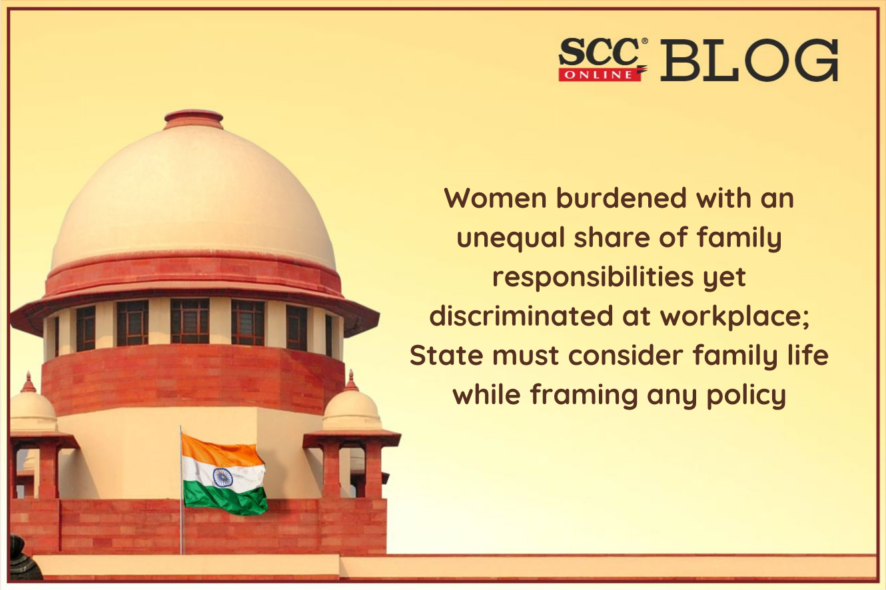Supreme Court: Speaking about the systemic discrimination on account of gender at the workplace which encapsulates the patriarchal construction that permeates all aspects of a woman’s being from the outset, including reproduction, sexuality and private choices, within an unjust structure, the bench of Dr. DY Chandrachud* and Vikram Nath, JJ has observed that it becomes necessary for the Government to adopt policies through which it produces substantive equality of opportunity as distinct from a formal equality for women in the workplace.
“Women are subject to a patriarchal mindset that regards them as primary caregivers and homemakers and thus, they are burdened with an unequal share of family responsibilities. Measures to ensure substantive equality for women factor in not only those disadvantages which operate to restrict access to the workplace but equally those which continue to operate once a woman has gained access to the workplace. The impact of gender in producing unequal outcomes continues to operate beyond the point of access. The true aim of achieving substantive equality must be fulfilled by the State in recognizing the persistent patterns of discrimination against women once they are in the workplace.”
The Court further observed that the manner in which a special provision should be adopted by the State is a policy choice which has to be exercised after balancing out constitutional values and the needs of the administration. But there can be no manner of doubt that the State, both in its role as a model employer as well as an institution which is subject to constitutional norms, must bear in mind the fundamental right to substantive equality when it crafts the policy even for its own employees.
“The State while formulating a policy for its own employees has to give due consideration to the importance of protecting family life as an element of the dignity of the person and a postulate of privacy. How a particular policy should be modulated to take into account the necessities of maintaining family life may be left at the threshold to be determined by the State. In crafting its policy however the State cannot be heard to say that it will be oblivious to basic constitutional values, including the preservation of family life which is an incident of Article 21.”
The observations came in the judgment where the Court has upheld the Kerala High Court verdict that had held that the Central Excise and Customs Commissionerates Inspector (Central Excise, Preventive Officer and Examiner) Group ‘B’ Posts Recruitment Rules 2016 (RR 2016) withdrawing the Inter-Commissionerate Transfers (ICTs) is not invalid as ICTs would violate the unique identity of each cadre envisaged under Rule 5 of RR 2016.
The Court, however, left it open to the Union of India to revisit the policy to accommodate posting of spouses, the needs of the disabled and compassionate grounds.
[SK Nausad Rahaman v. Union of India, 2022 SCC OnLine SC 297, decided on 10.03.2022]
*Judgment by: Justice Dr. DY Chandrachud
Counsels
For appellants and Intervenors: Senior Advocates Maninder Singh, Vibha Datta Makhija, PN Ravindran, Narender Hooda and Rana Mukherjee, and advocates Rishi Kapoor and Umakant Misra
For respondents: KM Nataraj, Additional Solicitor General






